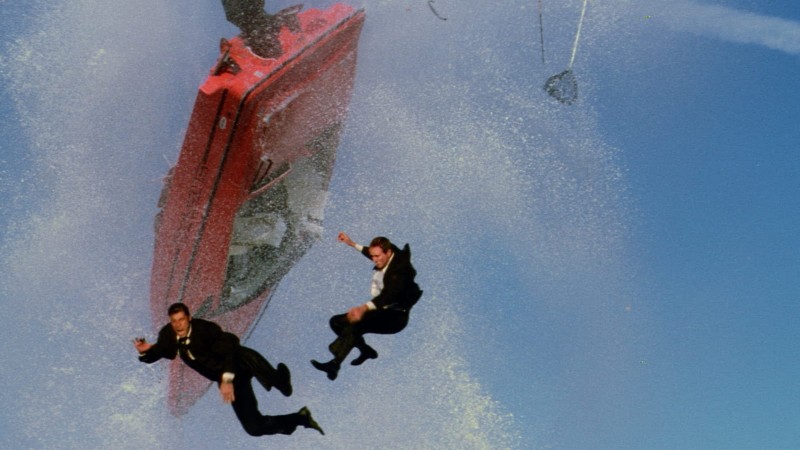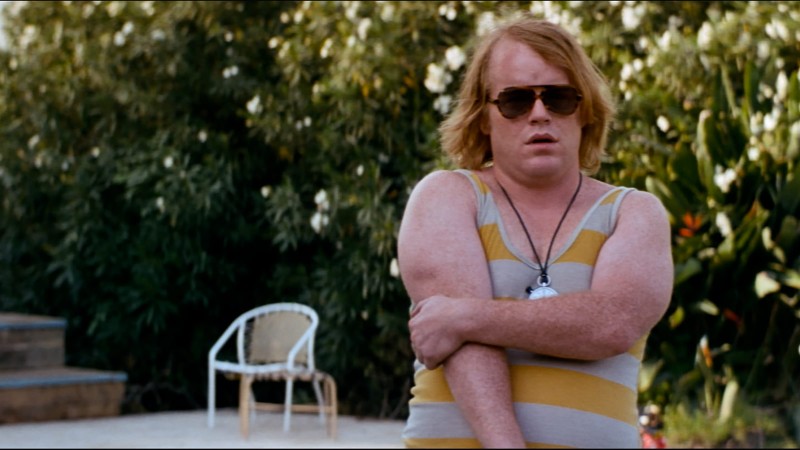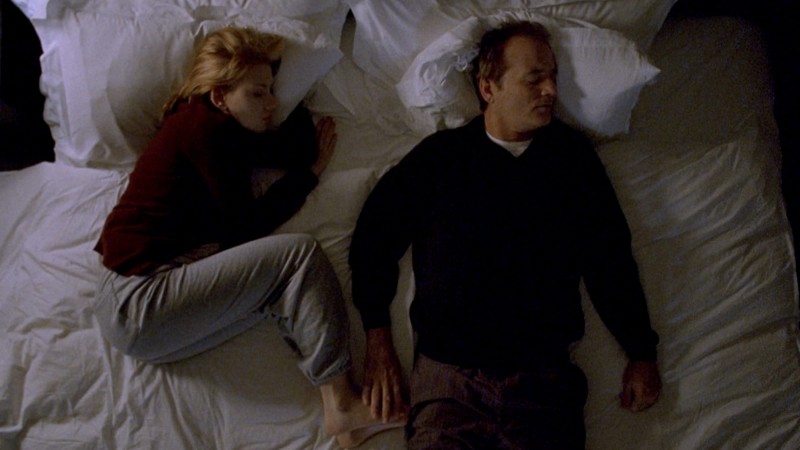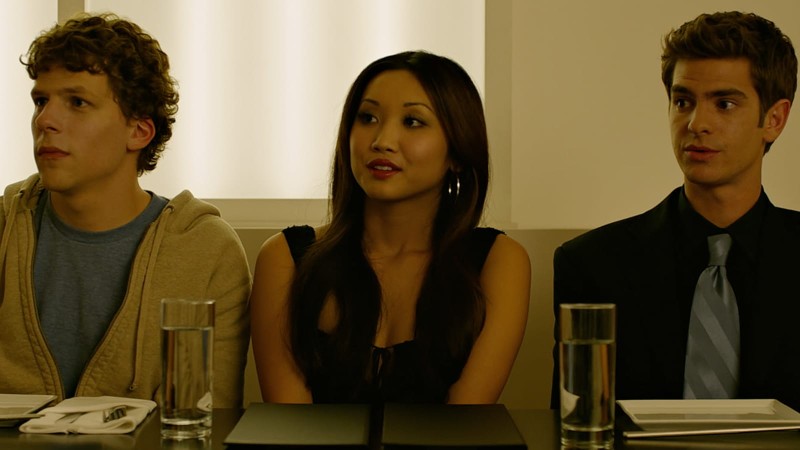The Criterion Channel’s April 2024 Lineup

The Criterion Channel’s April 2024 Lineup
This April, get ready to see in the dark: our One Night collection gathers some of our favorite movies that unfold within a tight timespan between dusk and dawn, while 1950: Peak Noir looks back to the year when Hollywood’s love affair with shadowy pulp fiction reached its apex. Don’t miss the long-unavailable films of Jean Eustache (The Mother and the Whore), our tribute to Hollywood maverick William Friedkin, or Lizzie Borden’s subversive feminist classics. There’s so much more to choose from this month, including a spotlight on Hong Kong melodramas filmed in New York, a pair of spellbinding provocations from Bertrand Bonello (The Beast), Michael Mann’s crime epic Heat, and the astonishing anime of Makoto Shinkai.
If you haven’t signed up yet, head to CriterionChannel.com and get a 7-day free trial.
* indicates programming available only in the U.S.
TOP STORIES

One Night
WATCH NOW
How much drama can one night contain? Marvels of compression, these films tell their stories over the course of just a few hours between quitting time and dawn, the perfect setting for horror (Night of the Living Dead), romance (Before Sunrise), deep conversation (My Dinner with Andre), and action (Collateral). In the hands of master directors like Mike Nichols (Who’s Afraid of Virginia Woolf?), Elaine May (Mikey and Nicky), and Martin Scorsese (After Hours), each minute becomes an adventure, emotions and relationships are intensely heightened, and one unforgettable night is enough to pack in a lifetime’s worth of tension, revelation, and surprise.
FEATURING: Cléo from 5 to 7 (1962), Who’s Afraid of Virginia Woolf? (1966), Night of the Living Dead (1968), Assault on Precinct 13 (1976), Mikey and Nicky (1976), My Dinner with Andre (1981), After Hours (1985), Night on Earth (1991), Before Sunrise (1995), Collateral (2004)*, Running Scared (2006), Oslo, August 31st (2011)*, Nocturama (2016)

Peak Noir: 1950
WATCH NOW
Featuring a new conversation between noir experts Eddie Muller and Imogen Sara Smith
The nihilistic shadow that loomed over postwar Hollywood was at its darkest in 1950, the year when the highest number of noir films were released. Ranging from canonical classics to hidden gems, these movies found directors like Nicholas Ray, Billy Wilder, and John Huston pushing noir beyond hard-boiled detective stories and hybridizing it with other genres: social-problem films tackling racism (No Way Out) and mob violence (Try and Get Me!), melodrama and “women’s pictures” (Caged, The Damned Don’t Cry), heist capers (The Asphalt Jungle), road movies (Gun Crazy), and even cynical self-portraits of Hollywood itself (Sunset Boulevard, In a Lonely Place). Exemplars of a move toward realism in Hollywood—many feature location shooting; true-crime sources; a grittier, less glamorous visual palette; and bleaker endings—these films exemplify the studio system at its peak, as well as the radical changes coming to the movies and the country itself.
FEATURING: The Asphalt Jungle (1950)*, Born to Be Bad (1950), The Breaking Point (1950), Caged (1950), The Damned Don’t Cry (1950), The File on Thelma Jordon (1950)*, Gun Crazy (1950), In a Lonely Place (1950), Night and the City (1950), No Way Out (1950), One Way Street (1950)*, Panic in the Streets (1950), The Sleeping City (1950)*, Stage Fright (1950), Sunset Boulevard (1950), Try and Get Me! (1950), Where the Sidewalk Ends (1950)

Directed by William Friedkin
WATCH NOW
One of the brashest auteurs to emerge from the New American Cinema, William Friedkin jolted new life into some of Hollywood’s most popular genres—from crime thriller to horror to action—with a gritty, documentary-like immediacy and a fearless approach to controversial subjects. While early triumphs like The Exorcist made him one of the most successful directors of the early 1970s, Friedkin’s often-overlooked later career is studded with fascinating personal projects—including Sorcerer, a white-knuckle remake of The Wages of Fear; and the infamous, enigmatic policier Cruising—that display his edgy stylistic verve and bold, uncompromising vision.
FEATURING: The Exorcist (1973), Sorcerer (1977), Cruising (1980), Deal of the Century (1983), Jade (1995)

The Dirty Stories of Jean Eustache
WATCH NOW
One of the most revered yet enigmatic figures to emerge in the wake of the French New Wave, Jean Eustache left behind a handful of unsentimental yet compassionate films that continue to be rediscovered and embraced by new generations of cinephiles. With a string of early shorts, he developed the rigorous visual style and themes—the bewildering complexities of romance and the obliviousness of awkward young men chasing it—that led to his magnum opus The Mother and the Whore, an epic, cuttingly intimate record of post–May ’68 disillusionment as glimpsed via a rocky ménage à trois. Though he completed only one other feature—the similarly personal, Bressonian coming-of-age gem My Little Loves—and another fascinating cycle of shorts exploring the relationships between language, image, performance, and meaning, Eustache’s small but influential body of work constitutes a vital trove of self-inquiry, structural exploration, and humanistic yearning.
FEATURES: The Mother and the Whore (1973), My Little Loves (1974)
SHORTS: Robinson’s Place (1963), Santa Claus Has Blue Eyes (1966), The Virgin of Pessac (1969), Numéro zéro (1971), The Pig (1975), A Dirty Story (1977), The Virgin of Pessac 79 (1979), Alix’s Pictures (1980), Hieronymus Bosch’s Garden of Delights (1981), Employment Offer (1982)

Films by Makoto Shinkai
WATCH NOW
Like his predecessor Hayao Miyazaki, to whom he is often compared, Makoto Shinkai has taken anime to new heights of pure cinematic achievement. Specially attuned to the loneliness of young people living in digitally saturated urban environments, he depicts their longing and need—no matter how impossible—for true human connection in dazzlingly imaginative works like 5 Centimeters per Second, The Garden of Words, and Your Name. His wondrous visual style, layering photorealism and expressive hyperbole, brings a uniquely present-tense magical realism to idiosyncratic, emotionally captivating narratives that redefine the possibilities of animated storytelling.
FEATURES: The Place Promised in Our Early Days (2004), 5 Centimeters per Second (2007), Children Who Chase Lost Voices (2011), The Garden of Words (2013), Your Name. (2016)
SHORTS: She and Her Cat (1999), Voices of a Distant Star (2002)

Hong Kong in New York
WATCH NOW
Two island metropolises enter into rich cross-cultural dialogue in these East-meets-West melodramas that double as explorations of diasporic identity. As Hong Kong’s film industry exploded in the 1980s and ’90s, mounting pre-Handover political pressures at home spurred a wave of overseas emigration—often to New York City—and gave rise to a new kind of movie that spoke to the experiences of Hong Kongers abroad. Featuring stars like Maggie Cheung, Chow Yun-fat, and Sylvia Chang, these perceptive and affecting films find such major Hong Kong auteurs as Mabel Cheung (An Autumn’s Tale), Peter Ho-sun Chan (Comrades: Almost a Love Story), and Stanley Kwan (Full Moon in New York) grappling with lives carried far from home.
FEATURING: An Autumn’s Tale (1987), Farewell China (1990), Full Moon in New York (1989), Comrades: Almost a Love Story (1996)

Surreal Nature Films
WATCH NOW
In celebration of Earth Day, be awed by the astounding strangeness and diversity of nature in all its bizarre and beautiful glory. From atomic-age science-fiction disaster films about irradiated ants (Them!, Phase IV) to the sublime stranger-than-fiction scientific studies of biologist Jean Painlevé and an extraordinary up-close encounter with the insect universe (Microcosmos), these eye-opening alternate perspectives on our very own planet remind us of the tantalizing mysteries of the natural world.
FEATURES: Them! (1954), Phase IV (1974), Microcosmos (1996), Cane Toads: An Unnatural History (1988), The Natural History of the Chicken (2000)
SHORTS: The Sea Horse (1933), The Vampire (1945), How Some Jellyfish Are Born (1960), The Love Life of the Octopus (1967), Green Porno: “Mantis” (2008), Green Porno: “Anchovy” (2009), Seduce Me: “Seahorse” (2010)

Premiering April 19: Wim Wenders’s Adventures in Moviegoing
Whether traveling the open roads of his native Germany, the American West, or—as in his acclaimed latest, Perfect Days—the streets of Tokyo, Wim Wenders maps both the inner worlds of wanderers and dreamers and the outer spaces they inhabit. In this edition of Adventures in Moviegoing, Wenders sits down with fellow filmmaker Michael Almereyda to discuss his own meandering path toward directing, one that began in earnest with his cinematic self-education while studying art in Paris. The films he has chosen to present include favorites by Yasujiro Ozu, Agnès Varda, and Laurie Anderson, artists who speak through a cinematic grammar all their own.
FEATURING: The Munekata Sisters (1950), La pointe courte (1956), Tokyo Twilight (1957), The Bridge (1958), Le petit soldat (1963), The Merchant of Four Seasons (1971), Heart of a Dog (2015)
EXCLUSIVE PREMIERES

Anselm*
WATCH NOW
Featuring a new interview with director Wim Wenders, part of Criterion’s Meet the Filmmakers series
In Anselm, Wim Wenders creates a hypnotic portrait of Anselm Kiefer, one of the most innovative and important painters and sculptors of our time. Shot in 6K resolution—and released theatrically in 3D—the film presents an immersive cinematic experience of the German artist’s work, which explores the overawing beauty of human existence, landscape, and myth, and confronts the horrors of his country’s history, seeking to undo the postwar silence in which Kiefer came of age. Through archival footage, reenactment, and direct access to his subject at work in the massive installation in Southern France where he now lives amid his creations, Wenders traces the arc of Kiefer’s career, provoking an engagement with creativity through the senses, intellect, and spirit.

Mambar Pierrette
WATCH NOW
Over the past decade, Cameroonian filmmaker Rosine Mbakam has distinguished herself with her incisive observational documentary portraits of African women. With Mambar Pierrette, her feature narrative debut, Mbakam turns her eye to the eponymous Pierrette (Pierrette Aboheu Njeuthat), a gifted seamstress who works to support her young children and mother in the city of Douala, Cameroon. More than a tailor, she is the confidant of her customers and community. But when it starts pouring and the rain threatens to flood her workshop—one of many misfortunes—Pierrette will have to struggle to stay afloat. Marked by moments of everyday beauty and quiet grace, Mbakam’s naturalistic approach yields a quietly affecting portrait of resilience in the face of adversity and socioeconomic hardship.
REDISCOVERIES AND RESTORATIONS

Regrouping
WATCH NOW
While Lizzie Borden’s features Born in Flames and Working Girls have taken their place as landmarks of feminist cinema, her debut—the fascinating experimental documentary Regrouping—has gone largely unseen. A multilayered, self-reflexive portrait of a 1970s New York City feminist collective, the film charts the rifts that form within the group and between its members and the filmmaker—a breakdown that is reflected in the film’s radical splintering of sound and image. Shelved for decades due to the objections of its subjects, Regrouping—exhibited now with the permission of its participants—reemerges as an essential chronicle of the second-wave women’s movement and of the meaning, possibilities, and pitfalls of collective action.

The Strangler
WATCH NOW
A singularly strange and haunting French giallo released before directors like Dario Argento and Lucio Fulci brought the subgenre to international prominence, Paul Vecchiali’s The Strangler equally subverts and indulges in the conventions of the style with unexpected beauty and refinement. Émile (Jacques Perrin), a handsome young man tormented by a traumatic childhood memory, targets women he believes are too depressed to go on living. As multiple women fall to Émile’s suffocating white scarf, inspector Simon Dangret, the detective assigned to track down the killer, resorts to seriously unorthodox and even unethical methods to get his man, with the assistance of Anna, a beautiful woman who believes herself to be a potential victim.

Come Back, Africa
WATCH NOW
One of the bravest and most powerful political films ever made, Lionel Rogosin’s urgent indictment of racial injustice—filmed in secret in 1950s Johannesburg, South Africa—follows a young Zulu man’s struggles to provide for his family under the crushing burden of apartheid. As in his previous docufiction landmark On the Bowery, Rogosin immersed himself in the world of his subjects, in this case in the Black cultural hub of Sophiatown, a vibrant center of music, art, literature, and politics that was soon to be razed by the government to make way for a whites-only suburb. Largely improvised by a nonprofessional cast that includes legendary singer and activist Miriam Makeba, Come Back, Africa reveals both the cruelty of apartheid and the vitality of a community struggling for equality.
CRITERION COLLECTION EDITIONS

Martin Scorsese’s dark-comic detour into downtown Manhattan turns the city’s zonked-out bohemian night world into a weirdo wonderland of surreal menace.
SUPPLEMENTAL FEATURES: A conversation between Scorsese and writer Fran Lebowitz, audio commentary featuring Scorsese and cast and crew members, a documentary on the making of the film, deleted scenes, and more.

Kristen Stewart texts with a ghost in this intimate, audacious supernatural thriller set in the world of celebrity and haute couture.
SUPPLEMENTAL FEATURES: An interview with director Olivier Assayas and the press conference from the film’s Cannes premiere, featuring Stewart and other cast and crew members.

Werckmeister Harmonies (Béla Tarr and Ágnes Hranitzky, 2000)
Criterion Collection Edition #1215
In thirty-nine hypnotic long takes engraved in ghostly black and white, Béla Tarr and Ágnes Hranitzky conjure a mesmeric parable of social collapse and an enigma of transcendent visual, philosophical, and mystical resonance.
SUPPLEMENTAL FEATURES: An interview with Tarr and his 1979 debut feature Family Nest.
DIRECTOR SPOTLIGHTS

Lizzie Borden’s Feminist Underground
WATCH NOW
Revolutionary in both content and form, the films of Lizzie Borden testify to the potential of a politically committed cinema to fight back against prevailing representations of women on-screen. Her first three features—the long-unavailable experimental documentary Regrouping, the dystopian sci-fi provocation Born in Flames, and the radically nonjudgmental portrait of a brothel Working Girls—explore female collectivity across lines of race, class, and sexuality in ways that still feel ahead of their time.
FEATURING: Regrouping (1976), Born in Flames (1983), Working Girls (1986)

Two by Bertrand Bonello
WATCH NOW
Featuring an interview with Bonello, part of Criterion’s Meet the Filmmakers series
The audacious, coolly spellbinding films of French virtuoso Bertrand Bonello—whose The Beast is currently rampaging toward an art-house theater near you—first seduce with their sleekly stylized surfaces, then pull the rug out from under you with their subversive, provocatively open-ended critiques of capitalism, colonialism, and bourgeois decadence. From a luxurious Parisian brothel of House of Pleasures to the shopping mall transformed into a hideout for a band of teenage terrorists in Nocturama, Bonello stages his daring visions within meticulously constructed, subtly surreal worlds that he then sets into motion with the mesmerizing, balletic precision of a master choreographer.
FEATURING: House of Pleasures (2011), Nocturama (2016)

Three by Rosine Mbakam
WATCH NOW
Working across both documentary and narrative, Cameroonian auteur Rosine Mbakam makes intimate, exquisitely observed portraits of West African women both at home and abroad that illuminate their inner lives with quiet force. In her early shorts Doors of the Past and You Will Be My Ally and in her acclaimed narrative feature debut Mambar Pierrette—a rich mosaic of everyday survival in Douala, Cameroon, making its streaming debut here—she honors the painful realities of the immigrant experience, the complexities of cross-cultural identity, and the power and resilience of women in the face of hardship.
FEATURES: Mambar Pierrette (2023)
SHORTS: Doors of the Past (2011), You Will Be My Ally (2012)
ACTOR SPOTLIGHT

Three Starring Kristen Stewart
WATCH NOW
With an undeniable screen presence that’s at once moody, intense, and a bit mysterious, Kristen Stewart continues to fascinate as one of the most unique and consistently surprising actors of her generation. This trio of films from Stewart’s post-blockbuster career reinvention finds her bringing her edgy gravitas to passion projects by acclaimed auteurs Olivier Assayas (Clouds of Sils Maria, Personal Shopper) and Kelly Reichardt (Certain Women)—proving herself the rare star who could conquer both the Hollywood box office and the international art house.
FEATURING: Clouds of Sils Maria (2014), Personal Shopper (2016), Certain Women (2016)
HOLLYWOOD HITS

Heat
WATCH NOW
Robert De Niro and Al Pacino face off (and sit down for coffee) in this titanic crime epic from pulp poet Michael Mann.
TRUE STORIES

The Taking
WATCH NOW
Through a wealth of film clips, this illuminating cinematic essay reveals how Monument Valley, a site located on sovereign Navajo land, came to embody a Eurocentric fantasy of the Old West.










